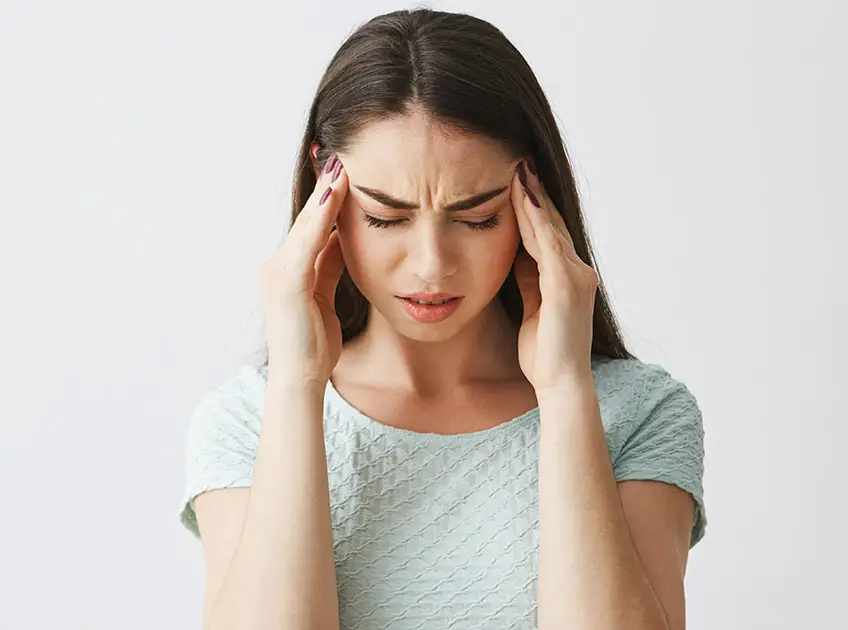
Important: This article is for informational purposes only. Please read our full disclaimer for more details.
Migraines are a type of headache that can be very debilitating. Some people get migraines so severe that they cannot function normally for days or even weeks at a time. While there is no cure for migraines, there are treatments that can help lessen their frequency and severity.
One such treatment is using essential oils. Essential oils are natural plant extracts that have been used for centuries for their healing properties. There is some evidence to suggest that they can be effective in treating migraines.
There are a few different essential oils that have been shown to be helpful for migraines. Lavender oil is one of the most popular and well-studied essential oils for migraines. It has been shown to reduce the frequency and severity of migraines.
Here are some essential oils that are effective in treating migraines:
8 Essential Oils for Migraine Pain Relief
1. Lavender Oil
Lavender oil is considered to be one of the most effective essential oils for migraines. It has been shown to reduce the frequency and severity of migraines. [1]
2. Peppermint Oil
Peppermint oil is another popular essential oil for migraines. It is known for its cooling and refreshing properties. Peppermint oil has been shown to be effective in reducing the intensity of migraines. Applying diluted peppermint oil to your temples can significantly reduce migraine headaches. [2]
3. Rosemary Oil
Rosemary oil is another essential oil that has been shown to be helpful for migraines. It is known for its ability to improve circulation and relieve pain. Rosemary oil is known for it’s anti-inflammatory properties. [3]
4. Eucalyptus Oil
Eucalyptus oil is an essential oil that has a refreshing, minty smell. It is known for its ability to clear the sinuses and relieve headaches. It can even help relieve tension headaches.
5. Frankincense Oil
Frankincense oil is an essential oil that has a sweet, woody smell. It is known for its ability to reduce inflammation and pain. Frankincense oil can be helpful in reducing the severity of migraines.
6. Ginger Oil
Ginger oil is an essential oil that has a warm, spicy smell. It is known for its ability to improve circulation and relieve pain. Ginger oil has been shown to be effective in reducing the intensity of migraines. [4]
[ Read: 10 Calming Essential Oils for Relaxation ]
7. Chamomile Oil
Chamomile oil is an essential oil that has a sweet, floral smell. It is known for its ability to calm the nerves and relieve migraines. Chamomile oil is anti-inflammatory and can be helpful in reducing the severity of migraines. [5]
8. Geranium Oil
Geranium oil is an essential oil that has a sweet, floral smell. It is known for its ability to improve circulation and relieve pain. Geranium oil can be helpful in reducing the intensity of migraines.
How to Use Essential Oils for Migraines?
- You can add a few drops of essential oil to a diffuser and inhale the aroma.
- You can add a few drops of essential oil to your bathwater and soak in the tub.
- You can massage a few drops of essential oil mixed with any carrier oil into your temples and forehead.
- You can mix a few drops of essential oil with a carrier oil and apply it to your neck and shoulders.
When to Consult a Doctor?
If you experience chronic or severe migraines, it is important to consult a doctor. There are medical treatments that can help reduce the frequency and severity of migraines. Essential oils should be used as a complementary treatment and not as a replacement for medical care.
When using essential oils for migraines, it is important to start with a low concentration and gradually increase it as needed. You should also stop using the essential oil if you experience any irritation or adverse reaction. Essential oils are generally safe for most people, but they can cause side effects in some people.
You Might Also Like:
- 15 Best Essential Oils for Cough: Benefits & How to Use
- 10 Best Essential Oils for Headaches
- Essential Oils for Hair Loss: Benefits and How to Use
- How to Use Salt for Migraine Relief Instantly
- 4 Easy Ways to Get Rid of a Migraine Fast With Feverfew
- 8 Essential Oils for Sore Muscle Pain Relief
- 10 Essential Oils for Pain Relief: How To Use It?
- The 9 Best Essential Oils for Sunburn Relief
- How to Use Peppermint Oil for Headaches?
- How to Cure a Headache Fast with Apple Cider Vinegar
- Yoga for Migraine: 5 Best Yoga Asanas to Treat Migraine















